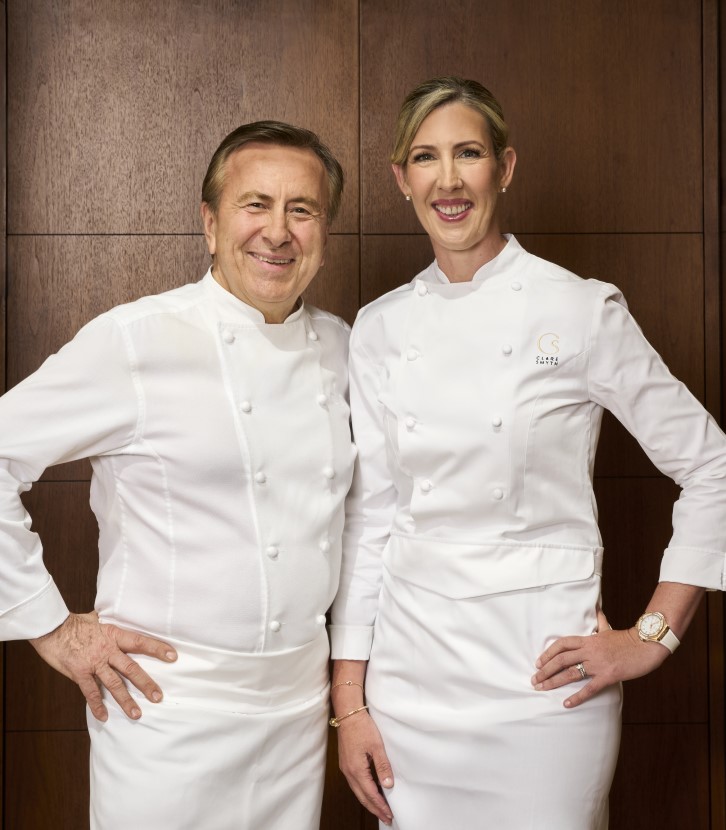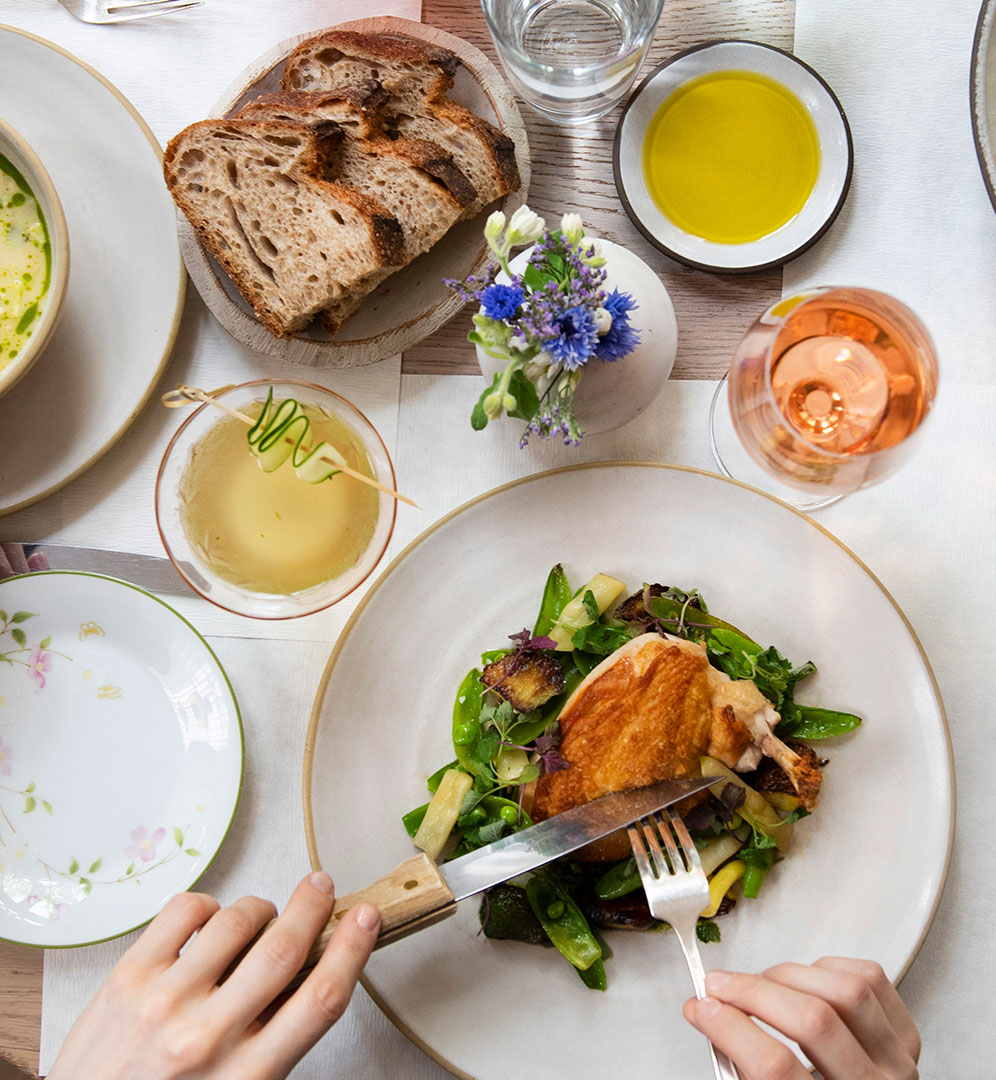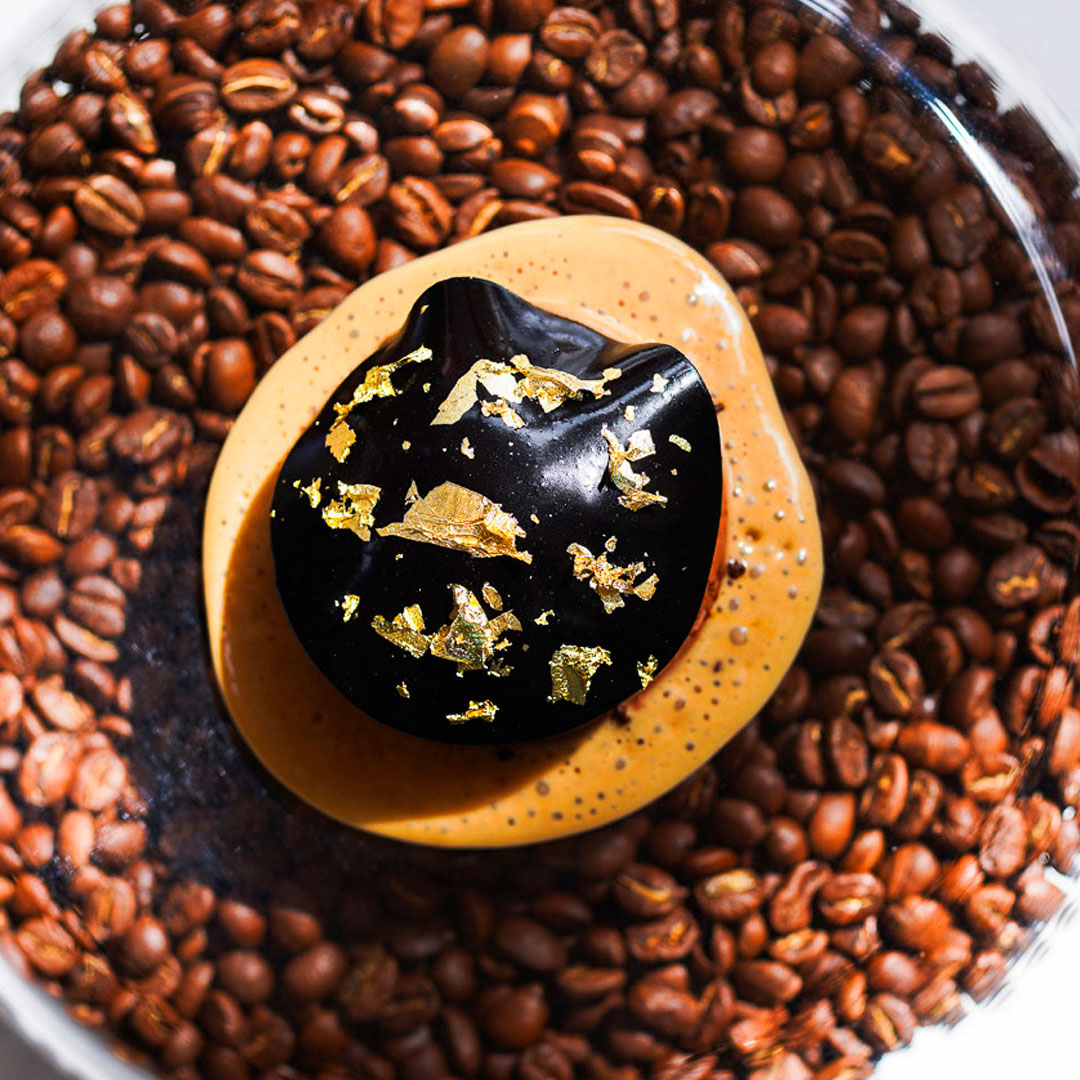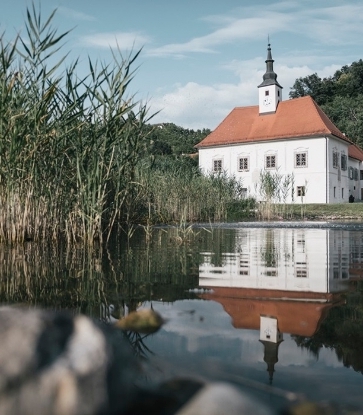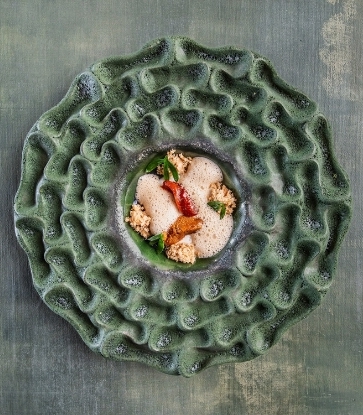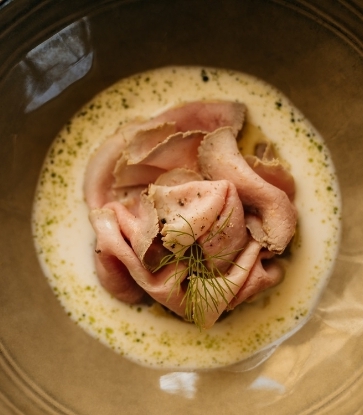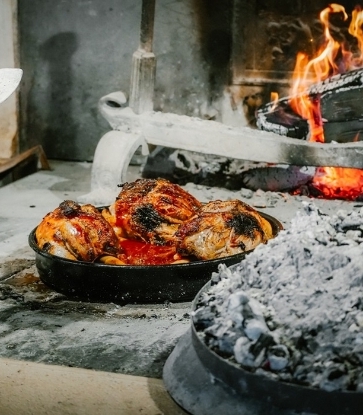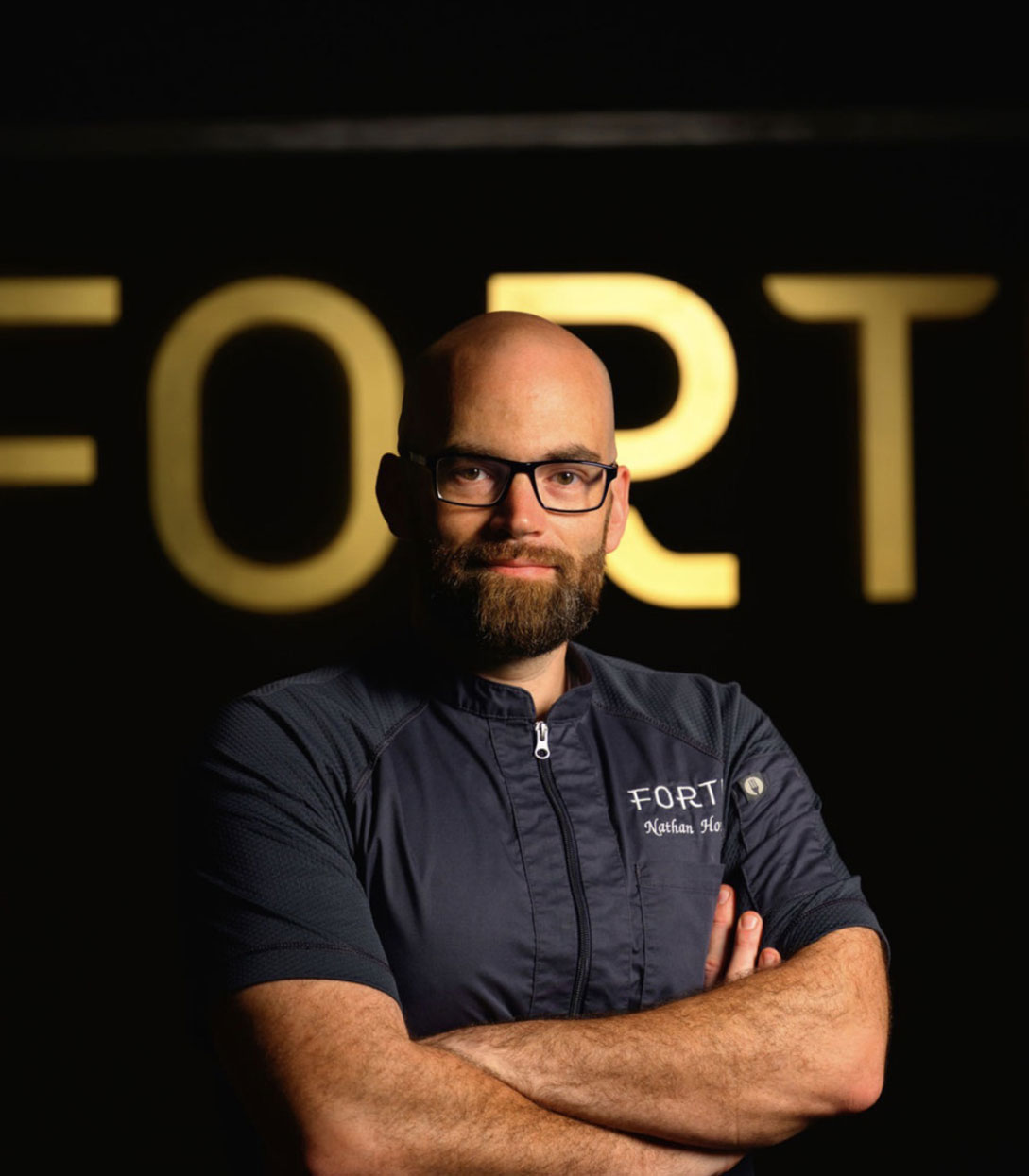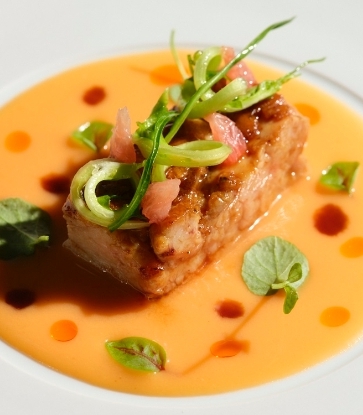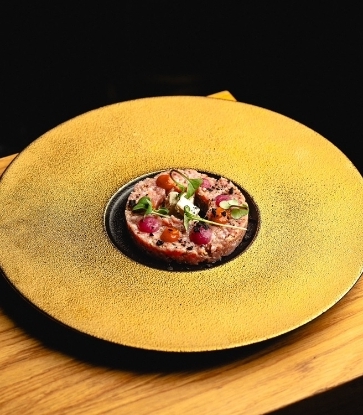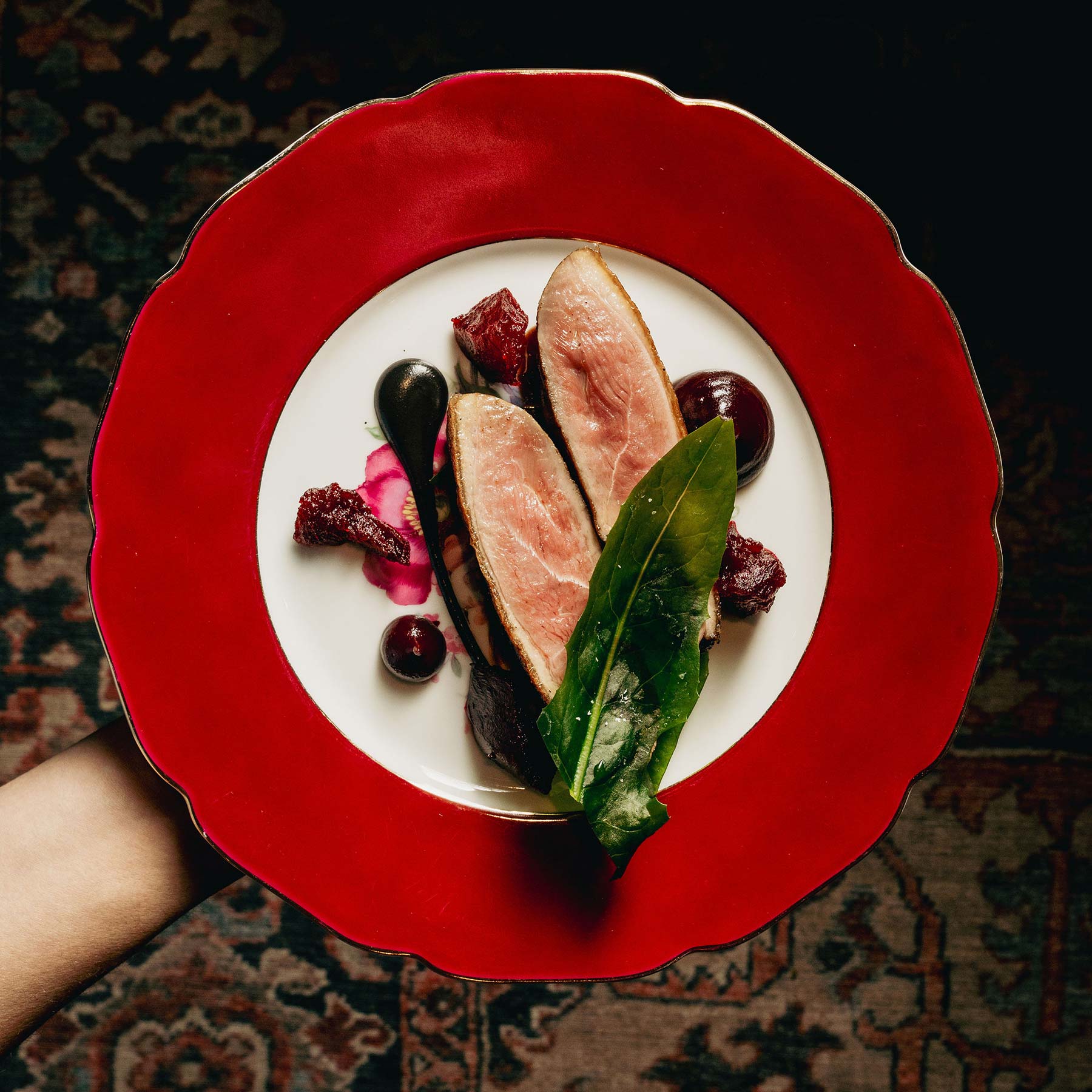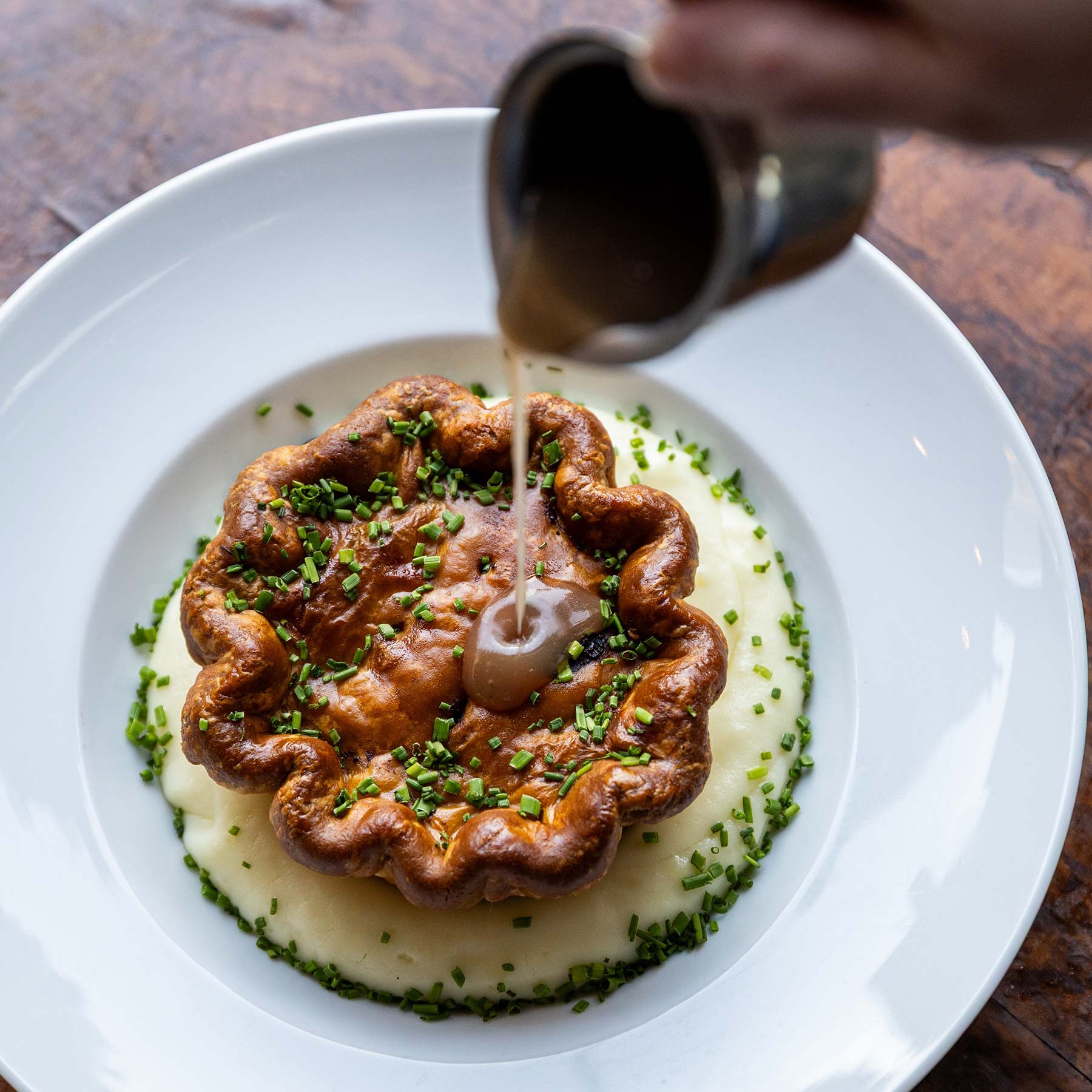Kraków’s Main Square is an obligatory stop on every trip to this city steeped in history. Monumental and grand, flanked by grand colourful buildings, the towers of St Mary’s Basilica and the arcades of the Cloth Hall (Sukiennice), it is picture perfect. But let’s head away from this busy and buzzing square for a moment and into the charming maze of quaint narrow streets and alleys surrounding it. Turn left then right, and you will find yourself on St Mark’s Street, by an old residential palace that now houses Farina, one of Kraków's most popular restaurants.

“It was Juliusz who spotted it,” recalls Monika Turasiewicz, co-owner and executive chef at Farina. “Before it became the restaurant, it housed the offices of an international insurance company. The corner room was the director’s office and the main dining room was a space for the customers. It didn’t look like much, but we decided to take it – the location was just too perfect to let it go,” explains Turasiewicz.
It turned out the couple had good intuition. As soon as the renovation work started and builders removed the panels covering the walls and dropped the ceiling, the true beauty of the space revealed itself. “Below the panels we discovered meticulously decorated columns in the Mannerist style and, under the ceiling, carved wooden beams. One of them was carved with a date – 1618 – indicating the year the original building was completed. My university background is in art history – so you can imagine how excited I was about these unexpected discoveries!”

Art and food will intertwine a few times in this story and in the history of Farina. Monika Turasiewcz was born into a musical family – her mother was a professional violinist, her uncle a conductor of the orchestra in Vienna, and her godmother, a professor at the musical academy. But this same godmother was also an excellent cook and a gourmet. In addition to these talented family members, there were her grandparents, who ran a small bed and breakfast in Krynica Gorska, a mountain resort not far from Kraków. “My grandmother was an amazing cook and always encouraged me to stay with her in the kitchen. This fed my culinary fascination. She taught me about cooking but mostly about the art of hospitality. My grandfather, a musician, entertained diners by playing his clarinet, completing the whole dinner experience. I loved it,” recalls Monika Turasiewicz. During her childhood, she often followed her mother to Vienna, where she played concerts. “There I had a chance to experience a different gastronomy culture. We would go out for lunch and have dinner in Italian or Chinese restaurants – something you could not do back then, in the Poland of the 1980s.”

By word of mouth, Monika received her first private dining requests
Following these formative childhood experiences, Monika’s love for hospitality and gastronomy continued to grow. When she was in high school, she was already throwing dinner parties in her family home, serving multiple courses at a beautifully set table as conversation bubbled until late at night. She continued to hold these parties through university and soon, by word of mouth, Monika started to receive her first catering and private dining requests. “At one point, my friend, a regular at my dinners, asked me if I would like to help her in-laws with a restaurant they were about to open. I was to serve guests a menu inspired by Austro-Hungarian cuisine. I was in my final year of university, and it was when my adventure with professional catering officially started. For the first time, I had a chance to create my own menu, for my dishes to be served in a restaurant… And it was a success. One of the most important food critics wrote a rave review, and that made me sure that gastronomy was a path I wanted to follow,” says Turasiewicz.“The opportunity to follow that path came not long after that, when my parents and I decided to open a restaurant serving traditional eastern Polish cuisine, with me as the chef. We called it Jarema. I was 25 years old and had just graduated from university. As well as devising the menu, I had to cook, manage the kitchen team, sort out deliveries – everything really. It was a lot, but we pulled it off and, again, created something that Kraków fell in love with,” she recalls.
“I just followed my intuition”
Monika Turasiewcz’s career arose from pure passion for food and a constant hunger for new flavours. These came to her attention thanks to her husband, Juliusz, who at the time worked in a French company, meaning he travelled to France now and then. “During our phone calls he told me about the markets, fishmongers and cheese shops, what he had had for lunch and dinner, and I would insist that he describe every element of the dishes to me in detail. I had been running Jarema for a few years and was slowly starting to feel I needed something new, something more, that I felt a bit trapped in the fixed concept we had in place. My husband’s stories from France inspired me to throw a special mussels evening at our Polish restaurant – to cook for just one day something totally out of the blue. I invited our regular guests and friends to come, and I cooked the mussels in a few ways – for the first time in my life, I just followed my intuition and it worked; it advised me right,” she says.
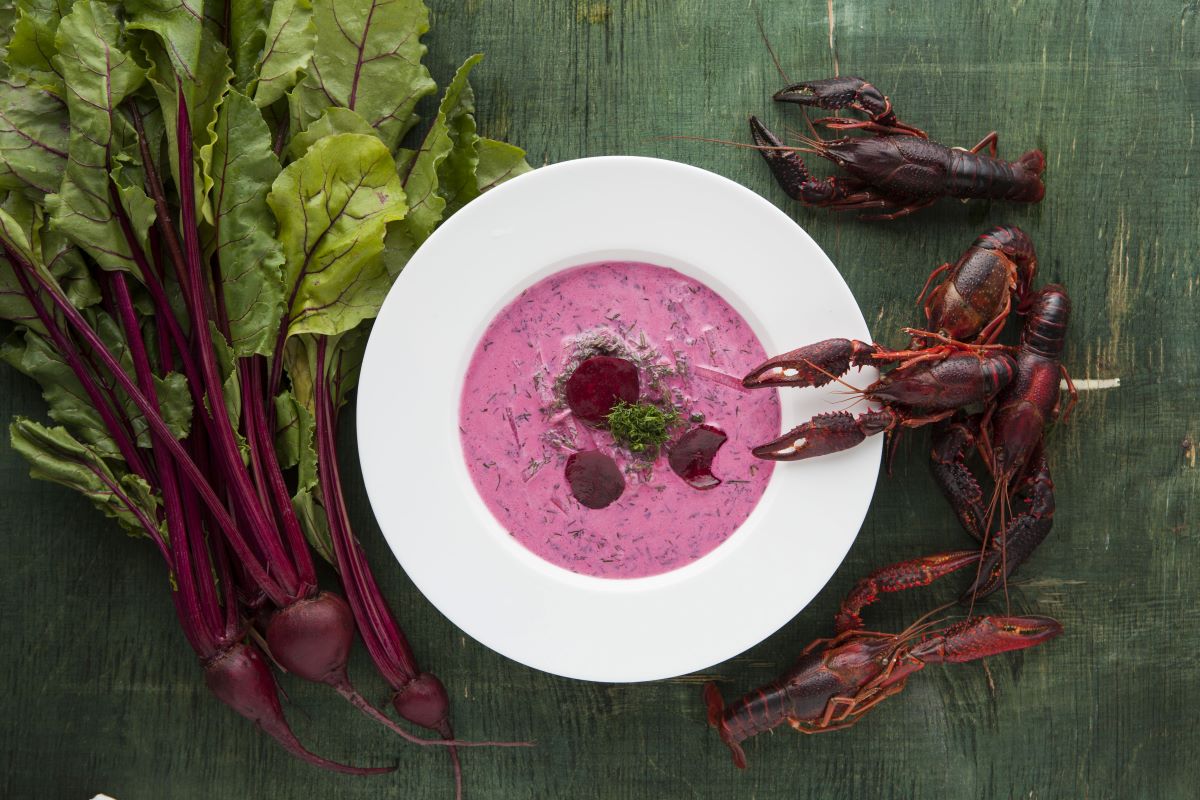
Soon the fascination with the sun-drenched cuisine of the Mediterranean gave rise to a new project, Monika and Juliusz’s own restaurant. They called it “Farina. Flour and Fish”, from the Italian word farina meaning “flour”. As Monika explains, they didn’t want to put themselves in a box… “But I was in one already. And what I wanted with Farina was freedom, space to create, to follow what excites me and flavours that delight me. That’s why we added “flour and fish”. We didn’t want to have an Italian restaurant, a French one, or to label ourselves a Mediterranean restaurant. What I wanted to transfer to Poland were foods I missed – the best seafood, fish – and the way they are prepared, the lightness coming from the techniques but also from the use of fresh herbs, citrus fruit, wines. But I didn’t want to abandon my flavours, the flavours I was raised on and that I truly adore,” she says. “I like to say I give those ingredients my own personal twist, a bit of strength, maybe a little more creaminess and roundness. I love Polish mushrooms, our seasonal fruit, I love pierogi as much as I adore fresh pasta. And what I love, I want to share with our guests.”
“What I love, I want to share with our guests”
To this day, this approach is visible on Farina’s menu. In addition to a main menu, each month there is a special seasonal menu that encapsulates Monika Turasiewicz’s most recent inspiration or reflects the seasonal Polish specialities available for just a brief time during the year. For example, it may feature spicy Thai soup with fish, or creamy pumpkin soup with a dash of coconut milk, toasted pumpkin seeds and ginger, or fresh tagliatelle with truffles imported directly from Umbria. On the main menu, you will find the crowd-pleasers from the last 20 years – signature dishes, as well as those that made their way from the seasonal menus into the main “hall of fame” menu. The chef recommends an already legendary shot of vodka with the fresh oysters. Among guests’ most beloved dishes are baby octopus sautéed with thyme, and prawns with chilli and honey (“If I were to go to a desert island, I would take with me some olive oil, chilli and honey: my holy trinity,” adds chef Turasiewicz). Then, of course, there are “mussels à la Farina” served with a silky sauce of cream, white wine and sautéed leeks, seasoned with garlic and a pinch of curry.
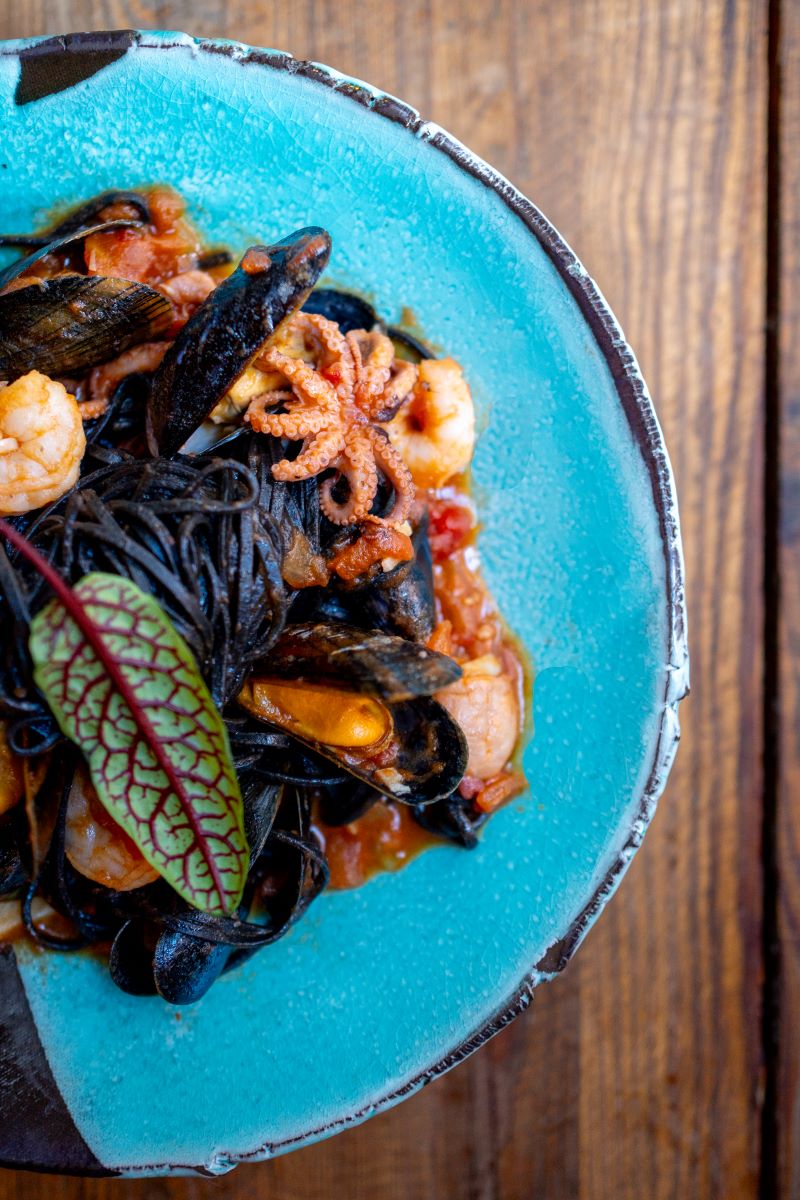
Next up is the “flour” part, in the form of Monika’s favourite plump black tortellini with salmon, accompanied by a light cream sauce spiced up with a single dried chilli pepper, served whole on a plate so that guests can adjust the heat to their liking, hearty gnocchi with spinach and gorgonzola or homemade tagliatelle with a half lobster. For the fish, I like to follow how they are prepared in France, Italy or Greece, grilling or roasting them whole and keeping it as simple as possible. I believe in authenticity in the kitchen. Something true and authentic will always win,” explains Monika Turasiewicz. In the early days of Farina, the fish would first be presented to the guest on a trolley and then portioned by the waiter to individual plates. “We saw this trolley somewhere in Greece, on holiday, and brought home with us – like many elements of the interiors. As for the beautiful silver-plated coolers for Champagne, I spotted this while in London for my Cordon Bleu course. Some stuff I carried in my hand luggage, other pieces we brought back in our car from summer holidays.”
While many chefs’ stories begin with a chapter at Le Cordon Bleu, for Monika it came later, when Farina was already well established. “Actually, it was my husband’s idea. When I started my career in gastronomy, I had no education in the area. I was a self-taught cook and learnt how to run a kitchen by doing it. Then in 2015, when Farina was already running successfully, my husband simply signed me up for Le Cordon Bleu and said, “go”. I arrived in London and found myself in a group of like-minded people who were as passionate as I am about food. We were of different ages, backgrounds, and nationalities, but we had the same goal and interest and that was what brought us close. Many people enrol for Le Cordon Bleu at the beginning of their career before they go to work at any restaurant – I already had over 15 years’ experience working in kitchens. So why would I go there? You don’t go to Le Cordon Bleu to learn new recipes, but to build foundations based on which you will be able to create something of your own. You learn organisation, mise en place and techniques, you learn how to chop and trim and to do it as effectively as possible. This experience not only consolidated my previous knowledge, but it also empowered me, and gave me this much-needed certificate – albeit more for others than for myself, a seal of being a chef.”

“Our goal: the best wine list in Kraków”
It is not rare to find a couple at the helm of a successful restaurant, and this is indeed the case of Farina. “It is our life project, mine and Juliusz’s,” confides Monika Turasiewicz. While she is in charge of the kitchen, her husband has taken on the role of executive sommelier and is responsible for wine choice and wine collection. “We gave ourselves a goal that we want to have the best wine list in Kraków, but that it should also be accessible. To serve wines that we enjoy, nothing less. I adore Champagne so we serve Champagne by the glass, and sparkling wines feature prominently on the wine list. To achieve this goal, in 2015 we founded another company, Farina Wina. By importing our own wines, we were able finally to obtain rare bottles that no one was bringing to Poland, but also to skip the middleman and offer our guests great wines personally chosen from our favourite winemakers. It is all about hospitality and creating the best experience for our guests.”

At dusk, the rooms of Farina begin to fill up. From a turquoise room with a beautiful high ceiling you hear the gentle clinking of glasses as the bartender prepares drinks, as well as the host welcoming guests as they arrive one after another. Chatter is punctuated by the muted pop of a Champagne cork. Many diners are regulars, some are here for the first time; some are speaking Polish, others foreign languages. “We were lucky and honoured to be recommended by MICHELIN for many years, and, as always, it was a great joy to see the name of Farina in the first official Polish selection of the MICHELIN Guide. Do I dream of a MICHELIN Star? I would be lying if I said I didn’t. For us, chefs and restaurateurs, it is one of the highest accolades, that what we are doing, we are doing well. And who doesn’t want to be praised for the work they believe in?” says Monika Turasiewicz. This year Farina will celebrate its 20th anniversary. “But we are still growing and evolving because we have managed to build a remarkable, professional team. This I consider our biggest success!”

Find restaurant Farina on the Map
Illustration Image : Warsaw city centre and Pola Mokotowskie park © dzika_mrowka/iStock




